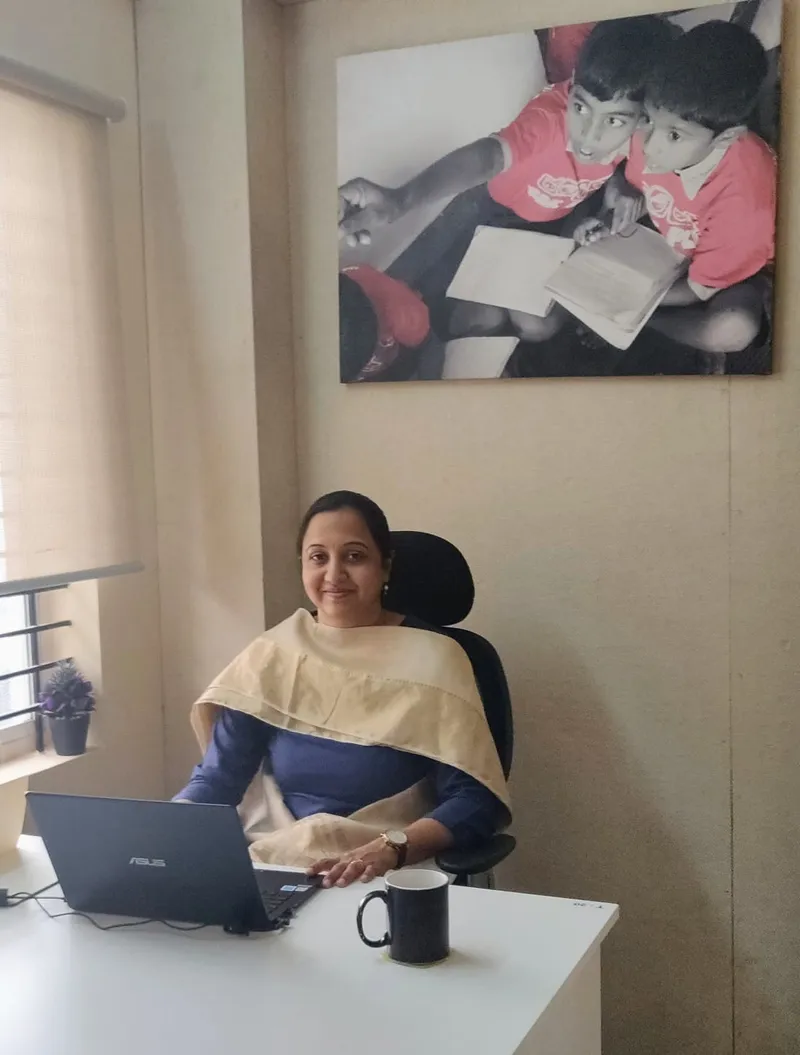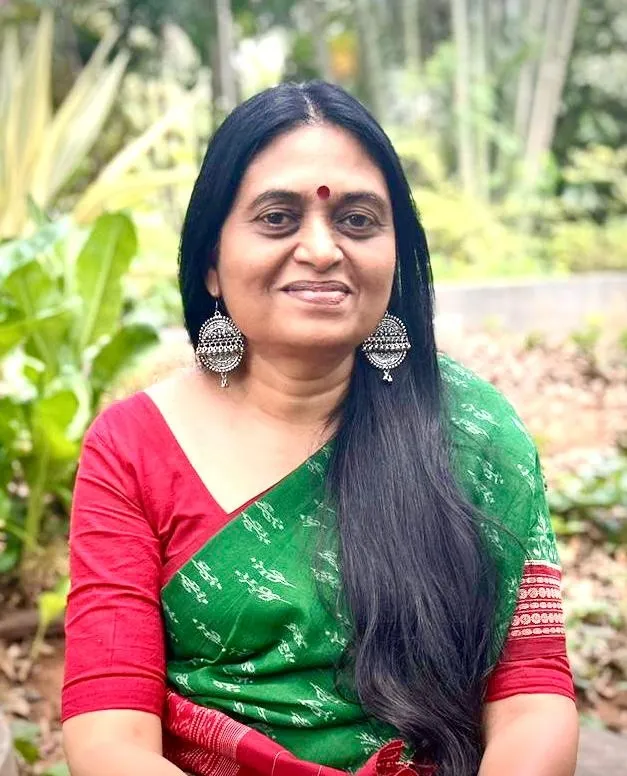Bolstering gender equality on the boards of non-profits
The Women on Boards programme trains women from the corporate sector and places them on the boards of nonprofit organisations. The idea is to leverage their unique skills and expertise and build strong and accountable governance in NGOs.
In February this year, Swetha Prakash became the first woman to join the advisory board of Satya Special School, a Puducherry-based NGO that works with children with special needs.
Prakash observed the day-to-day affairs of the school and noticed that its director and treasurer Chitra Shah was handling everything herself—from grassroots-level programmes to budgeting. And this put her under immense pressure.
Thanks to Prakash’s intervention and guidance, the school is now all set to welcome its first chief operating officer (COO) in 20 years.
The COO will not just share the administrative load but also drive the organisation’s mission, says Prakash, who has 18 years of work experience in the edtech sector, apart from a five-year stint as CEO of an Australian charity in skills education.

Swetha Prakash, who has 18 years of experience in edtech, is on the board of Satya Special School, a non-profit working with children with special needs.
Prior to joining the school, Prakash had undergone a special training programme called Women on Boards, which helped her transition smoothly into the advisory role at the non-profit.
The three-month programme is jointly run by the Indian School of Development Management (ISDM); Dasra, a Mumbai-based philanthropic foundation; and Governance Counts, a Chennai-based consulting initiative that works on strengthening non-profit boards. It provided Prakash with a comprehensive understanding of the role of boards in the social sector and the challenges they face.
Shah appreciates the unique outlook that Prakash brings to the table. While male board members have a keen eye for red flags, it is also important to bring in a social perspective, she says.
“For example, when I wanted to distribute free sanitary napkins as part of our programme, instead of immediately prioritising budgets, Swetha understood how this was key to our larger mission of inclusion and its intersectionality with disability rights. With her corporate experience, she was also able to communicate this idea to the board effectively,” explains Shah.
Many NGOs like Satya Special School are slowly realising the need to bolster their boards with women, as they come with diverse skillsets and qualities such as empathy, gender sensitivity, and personal experience—ultimately translating to better strategies, strong governance, and impact on the ground.
“Women leaders in Indian NGOs drive social change, addressing issues such as gender equality, women’s rights, domestic violence, education, health, and empowerment,” says Kavneet Kaur, Associate Director, Dasra, which has worked with around 1,500 non-profit organisations in capacity building and leadership development.
Women board members place people before systems and processes, points out Praveen Singh, CEO of Apanalaya, a Mumbai-based non-profit, which works with the urban poor. “They connect with every person working in the organisation and those benefitting from it. This builds trust and creates lasting impact,” he adds.
Interestingly, a majority of the board members at Apnalaya are women. But NGOs like Apnalaya are an exception.
Currently, the representation of women in many NGO boards is still skewed towards men, and a lot more needs to be done to strike a balance.
Low representation of women in NGO boards
According to the ‘Women in the Boardroom’ 2022 report by Deloitte Global Boardroom Program, women hold just 17.1% of the board seats in Corporate India. This is despite the Companies Act of 2013 that mandates one woman member on every board of a specific class of companies.
The situation is no different in the social sector when it comes to gender diversity and equity on the board.
In a survey done in 2016 on gender lens in grantmaking across 328 social organisations in India, Dasra found women were under-represented in managerial positions and above in two-thirds of organisations, and the difference was starker as they grew in size.
Globally, women dominate the non-profit workforce, accounting for over 70% of employees. But they comprise only 43% of the board seats in the sector, according to American human resource firm, Nonprofit HR.

Aarti Madhusudan, Founder, Governance Counts
“In our observation, as one goes higher up the value chain, the number of women in positions of influence or leadership tends to decline,” says Aarti Madhusudan, Founder, Governance Counts.
Sharad Agarwal, Founder of ISDM, attributes this to factors such as time constraints, family responsibilities, and inability to travel.
The Women on Boards initiative aims to address this challenge by training women with adequate experience (15 years or more) in the corporate sector and placing them on non-profit boards. It looks for professionals who are passionate about working pro bono in the social sector, can allot a minimum of eight hours a month on the programme, and are willing to share networks and resources.
Women on Boards
Three years ago, Governance Counts asked 137 social purpose organisations if they wanted to diversify their boards; 105 of them gave an affirmative answer. This resounding response led to the genesis of the Women on Boards programme.
Women on Boards was launched in February last year to leverage the skills and expertise of women from the corporate world and train them to tackle the challenges of the social sector. The goal is to build strong governance mechanisms and foster a culture of accountability in NGOs.
The programme’s paid three-month training blends different learning pedagogy, with virtual segments and in-person sessions in Delhi. Three modules are delivered across classroom sessions, case studies, and volunteering engagements with social impact organisations.
The first module focuses on the challenges in the social sector through the lenses of gender, poverty, and their intersectionality. It looks at the biases that people with privilege may have and how this impacts their work on the ground.
The second module delves into the role of the board—the need for a board member and how they can serve with patience and willingness to learn. These are key prerequisites in the non-profit sector, which needs both smart organisational decisions and undeterred focus on social impact in equal measure.
The third module provides the cohort members an immersive experience in a specific cause—through on-ground volunteering and exposure.
The programme culminates with participants being placed in NGO boards based on their interests and skills and the NGO’s requirements.
So far, of the 75 women from the first two cohorts of the programme, 50 of have been placed on the boards of NGOs such as Quest Alliance, Bengaluru; Protsahan India Foundation, Delhi; Apnalaya, Mumbai; Sshrishti Trust, Delhi; and Tech4Dev, Bengaluru.
Win-win for all
The programme seems to have created a win-win situation for women looking for a role in the social sector, alongside their corporate career, and NGOs in need of stewardship.
After 27 years in technology and consulting, Divya Sampath longed for something more. So, she began exploring opportunities in causes dear to her—gender diversity, bridging the digital skill divide, and conservation.
That’s when she heard about the Women on Boards programme and saw it as the perfect launchpad into the non-profit sector.
“This programme taught me not to ‘copy-paste’ my learnings from the corporate world on the social sector. I also learned the value of spending time with people on the ground and seeing the impact of our work first-hand for better insight,” says Sampath, who now serves on the advisory board of MukkaMaar, a Mumbai-based organisation that imparts self-defence training to school girls.
“The non-profit partners tell us that women leaders with immense technical knowhow and organisational skills look at problems in all its entirety and bring a nurturing and more empathetic perspective to solutions. The participants of the programme also feel that it has pushed them out of the bubble and appreciate the complex ground realities," says Priyanka Gupta, who leads the Women on Boards programme at ISDM.
The programme aims to rope in another 50 women in the boards of NGOs by this year.
Madhusudan believes the ultimate goal of Women on Boards is to create role models so that more young women strive to become leaders and more men are inspired to take a holistic view of problems and solutions.
(A quote was updated in the article.)
Edited by Swetha Kannan







